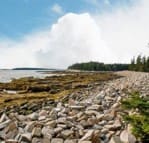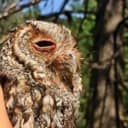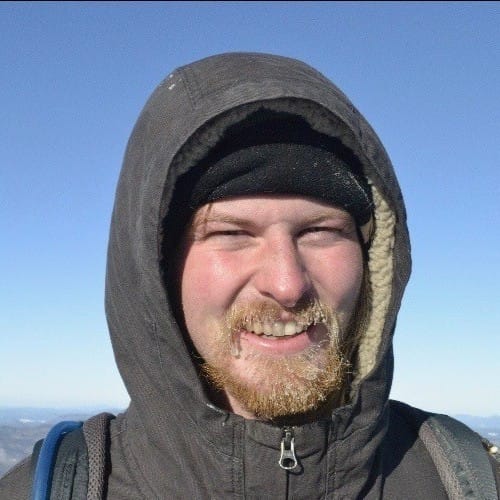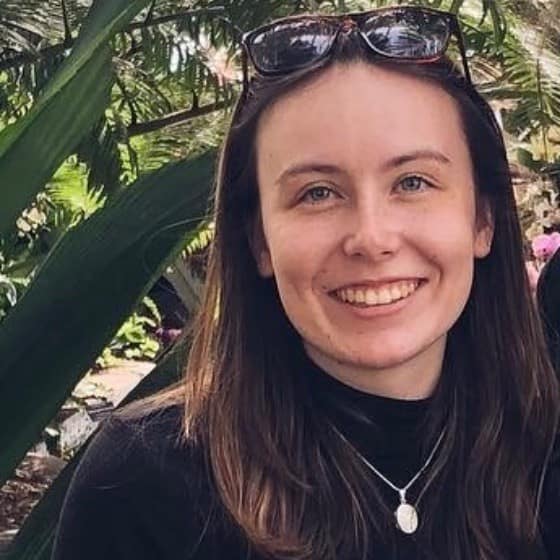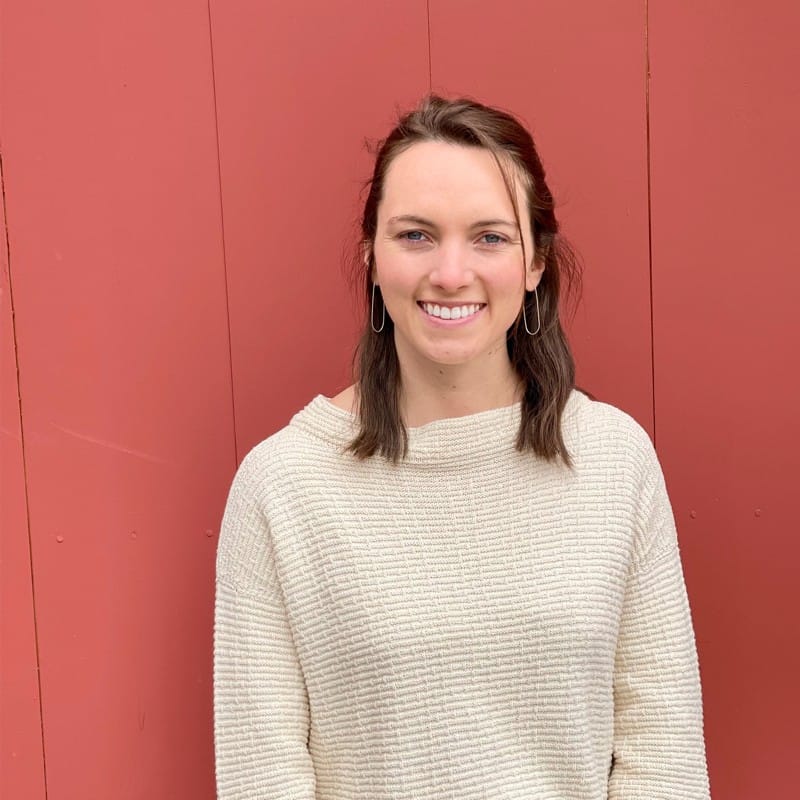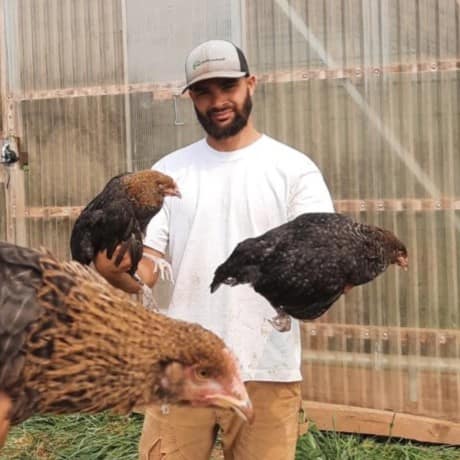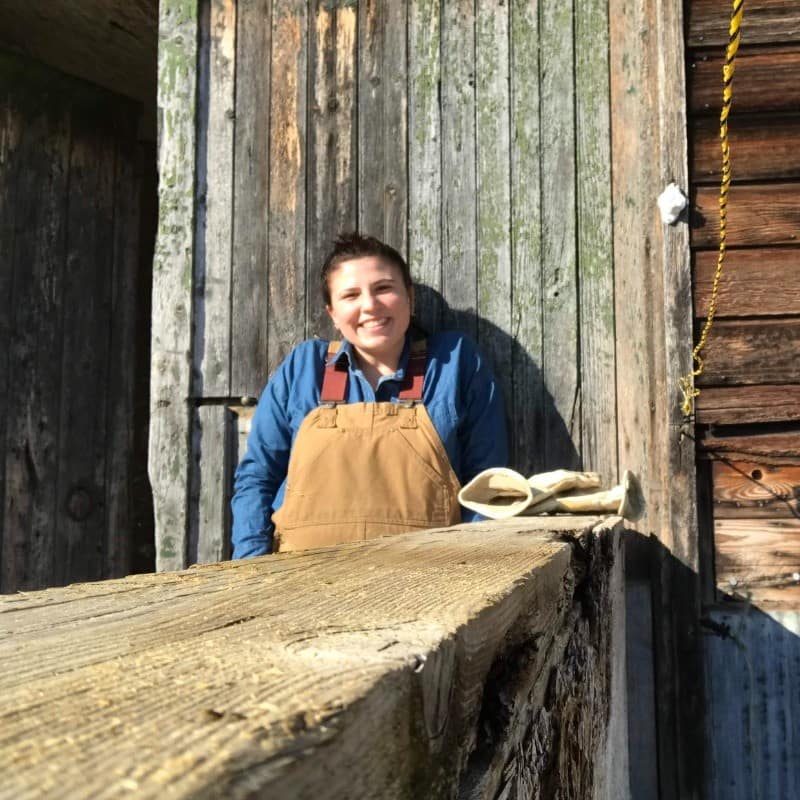Student Opportunities
We work to provide our students rich and deep experiences that will educate, promote change, and get their hands dirty. Come join us!
With community at its core, the Institute for the Environment works to create and support interdisciplinary, project-based student engagement in, for, and about the environment. Through external partnerships for special student-run projects, discussion panels and films, and co-sponsorship and coordination with existing clubs, groups, and departments on campus, students have countless opportunities to cultivate their passion and leadership for the health of our environment for years to come. Additionally, those seeking to make environmental engagement a larger part of their campus lives will find an array of work and internship experiences available to them right outside their residence halls.
ADMITTED & DEPOSITED STUDENTS – Two of our summer opportunities are available to you!
- You can work alongside our summer steward team for 1 week at a time from June 1 to July 31st. You need to have access to your own lodging for the week.
- You can explore the online academic enrichment opportunities.
Summer 2025 Programs
Climate Change: Sea to Trees at Acadia National Park
Location: Acadia National Park, Maine
Dates: July 6-12, 2025 or July 13-19, 2025
Sponsor: Earthwatch
The Acadia National Park is changing rapidly and this project will allow for interested students to help monitor and understand the changing forests and intertidal zones of the park through bioblitzes and opportunistic biodiversity observations.
As an Earthwatch participant, student will help inventory and monitor several field sites, asisst researchers by conducting both field and lab work, work in both the forest and intertidal studying community compositions, documenting birds, insects, plants, seaweed, and intertidal organisms and possibly transcribe data from historical records related to this work, as opportunity permits.
Following Forest Owls in the Western U.S.
Location: Utah and Arizona
Dates: May 24-31, 2025; May 27-June 6, 2025; June 6-13, 2025; June 15-22, 2025; July 13-20
Sponsor: Earthwatch
In the western U.S., climate change and land use practices are altering the habitat of many wildlife species, including many small owl species like the Flammulated Owl, the Northern Saw-whet Owl, the Elf Owl, the Whiskered Screech-Owl, and the Northern Pygmy-Owl. Participants in this expedition will inventory and study the dynamics of tree cavities in different forest types, and investigate the efficacy of introducing nest boxes as a tool that could replace/augment natural cavities and help to keep some owl populations afloat.
Participants can attend in either Utah or Arizona.
Click here to learn more about the Following Forest Owls in the Western U.S. program.
Change Shaping Certificate
This certificate program is a comprehensive five course, connection-based training to help enliven community and movement building by setting context, teaching history and theory, and providing the tools, skills, and mindsets to deepen how people can do change-making coalition building through EcoGather at Sterling College.
Cost: $1750
Climate + Change Course
A self-guided course provided through EcoGather at Sterling College that equips learners with the knowledge and skills to understand the science of climate change and move toward solutions to combat our greatest existential threat.
Cost: $199
Surviving the Future: A Path Through Tumultuous Times
A flexible, interactive online course offered through EcoGather at Sterling College that demystifies the interlocking ecological, economic and social crises and offers a tantalizing cultural vision of how we might respond in the context of the diverse realities that are faced today.
Cost: $150
GVI Individual Courses
Take courses in wildlife conservation, conservation and scientific research, careers in sustainable development, climate crisis and sustainability, ethics in sustainable development, impact measurement, leading teams for impact, and social entrepreneurship and impact investing at your own pace during the summer.
Cost: $395
GVI Programs
Study with a GVI program like foundations in wildlife conservation, foundations in climate change & sustainability, foundations in social entrepreneurship, advanced wildlife conservation, or mastering sustainable development to get ahead in the summer months.
Cost: $1395
Are you a student looking to connect your interests and coursework with an environmental theme through research? Consider applying for summer research in the early spring. Benefits of summer research include a summer stipend with additional funding upon need/request, and your name on any publication or product as a result of the research. This is a great opportunity to bulk up your resume, remain a part of the SMC community over the summer, and earn some extra money.
Summer research runs for eight weeks from June 1 through July 31 and each student receives a $5,000 stipend.
Summer research is full for 2025. Please look for information in the fall for Summer 2026.
Here’s how it works:
- Attend the (optional, but informative) information session for summer research opportunities across SMC in early January.
- Find a faculty member who is willing to act as a project mentor. Faculty members will not search for students; it is your responsibility to reach out to them and demonstrate your interest.
- Complete and submit an application–found in the MySMC Portal–by the deadline at the end of February.
Past Examples
“Environmental Paleolimnology in Saint Michael’s Natural Area Waterbodies”
Alexa Roux ’26
Majors: Chemistry and Environmental Science
Mentor: Professor Clay Williams (Environmental Studies and Science)
Through testing of four freshwater bodies in the natural area, Roux’s research will use paleo-ecotoxicology to determine how past anthropogenic contamination in the aquatic sediment influences the current water quality. “Because natural freshwater bodies are often at the lowest point of elevation, all of the man-made contaminants run through flooding and precipitation into these lakes. These contaminants build up in layers, which can be indicators of the lake’s health,” Roux said. Roux will compare the current state of the water to the historical record of its sediment.
“Gauging Knowledge of Invasive Species and Pollution in Vermont”
Elizabeth Crotty ’24
Major: Biology
Mentor: Professor Declan McCabe (Biology)
In order to track student and community knowledge, Crotty and her mentor created a digital survey to distribute. They also plan to have a few physical copies of the survey available at the Natural Area surrounding the College. Despite the benefits of creating new trails and educating the community, however, the question of costs can become an issue since some Natural Area stakeholders might be reluctant to spend the time, money, and resources on a project such as Crotty’s. For this reason, she said, “Through our research we also want to see how justifiable spending the resources and the money on it is. If we get the data solid, defined, and specific, then it’ll help other people if they’re considering further similar work in the future,” she said.
Internships
There are multiple internship opportunities in the environmental sector. Internships run for 8 to 10 weeks and students can earn a stipend of between $5000 to $6200, plus the cost of ID 498/499 (if academic credit is desired).
List of internship opportunities:
- Vermont Natural Resources Council
- GSR Solutions
- Vermont Information Processing (VIP)
- 350 Vermont
- Shelburne Farms
- Crow’s Path
- Re-Tribe
- Common Roots
- NOFA VT (Northeast Organic Farming Association of Vermont)
- Vermont Youth Conservation Corps
- Green Mountain Farm to School
- Salvation Farms
- Upper Valley Land Trust
- Zeno Mountain Farm
- ECHO Leahy Center for Lake Champlain
RISE Summit @ UVM
June 17, 2025
The RISE Summer is a one-day summit where representatives from UVM, other universities, community organizations, municipalities and regions, businesses and government will come together to consider how collaborative research can provide critical tools to solve problems in their rural places.
This year’s theme is Research as a Public Good and will be held at the Grand Maple Ballroom in the Davis Center of the University of Vermont, with virtual attendance options available.
Applications are open for Summer 2025 positions with the Institute for the Environment!
These positions will be for 13 weeks – from May 19 through August 8 – and will include opportunities for professional development, networking, and faculty mentorship as you work with the Institute for the Environment. A stipend of $8,580 is available for each position.
Admitted/Deposit students: Admitted students have the opportunity to work along side current students for 1 week from June 1st to July 31st. You need to have access to your own lodging for the week.
To search for jobs and internships in the field of environmental science, visit Handshake and login with your MikeNet credentials. Under the “Jobs” tab, you can search for positions using keywords, locations, job titles, and employer names. You can also filter jobs based on major, job function, and industry.
Here are some search suggestions for finding environmental science positions:
Keywords – “environmental”, “ecology”, “wildlife”, “sustainability”, “conservation”, “nature”
Industries – Environmental Services, Animal & Wildlife
Job functions – Environmental/Sustainability Mgmt., Lab work/Science
Login to Handshake at: https://smcvt.joinhandshake.com

Our employment cycle begins each spring. When we have open positions, the applications will be posted on Handshake. Typically, students will apply for employment in the fall, interview at the end of the fall semester, and begin employment starting the following spring semester. This way our students get a full working season (spring, summer, and fall) with us before graduating, moving on to another position at the college, or continuing to work with the Institute.
The Summer Farm Crew positions are special in that you do not have to be previously-affiliated with the Institute for the Environment or the Environmental Studies and Science department in order to apply. If you are interested in working on production, vegetable farm in the summer months, consider applying each spring!
Ecological Restoration: Maintenance & Operations Coordinator (1-2 openings)
The Ecological Restoration: Maintenance & Operations Coordinator position is for a student at Saint Michael’s College that is interested in applying their academic studies and cultivating leadership skills within the context of managing an educational native and flowering gardens, small-scale food forest, and multi-use natural area. This position is ideal for someone interested in balancing the diverse needs of academic education, research, artistic expression, recreation, athletics, and community engagement and/or someone interested in small ecologically-managed horticultural production and its underlying social, cultural, environmental and biologic principles. Furthermore, this student is committed to learning our systems to thoughtfully and thoroughly engage visitors in our campus. Collaboration, organization, communication, and critical thinking are key skills of this position.
This position is for a student in their first or second year of school and ideally has an interest in matriculating through the leadership team for the Center.
Ecological Restoration: Education & Outreach Coordinator (1-2 openings)
The Ecological Restoration: Education & Outreach Coordinator position is for a student at Saint Michael’s College that is interested in applying their academic studies and cultivating leadership skills within the context of articulating the work of and programming associated with the management of an educational native and flowering gardens, small-scale food forest, and multi-use natural area. This position is ideal for someone interested in balancing the diverse needs of academic education, research, artistic expression, recreation, athletics, and community engagement and/or someone interested in small ecologically-managed horticultural production and its underlying social, cultural, environmental and biologic principles. Furthermore, this student is committed to learning our systems to thoughtfully and thoroughly engage visitors in our campus. Collaboration, organization, communication, and critical thinking are key skills of this position that focuses on the creation of educational materials and experiences for campus and community members.
This position is for a student in their first or second year of school and ideally has an interest in matriculating through the leadership team for the Center.
Sustainable Campus Program Coordinator (1 opening)
The Sustainable Campus Program Coordinator position is for a student of Saint Michael’s College that is interested in applying their academic studies and cultivating leadership skills within the context of environmental awareness on a small, residential campus. This is an advanced position for a student with a background in diversity, marketing, education, and event coordination – planning and implementation. This student will approach their duties, specifically event planning and social media presence, through the lens of and have a focus on Diversity, Equity, & Inclusion.
The focus on these systems and collaboration with their peers will allow the student the opportunity to put many of their academic studies into practice and complement them with technical skills, build a professional network, and cultivate leadership skills.
This position is for a student in their third or fourth year of school and ideally has an interest in self-starting, leadership, and accountability.
Farm & Food: Maintenance & Operations Coordinator (1 opening)
The Farm & Food Program: Maintenance & Operations Coordinator position is for a student of Saint Michael’s College that is interested in applying their academic studies and cultivating leadership skills within the context of managing and contributing to an educational farm stand, small-scale raised bed gardens, and campus-level food pantry.
The Maintenance & Operations Coordinator may be past summer employees, past farm program interns or students, past research students, or just exploring their interest in sustainable ag. As outlined in your on-boarding info, you will be evaluated by your attendance and level of participation in weekly meetings, programming. Commitment is crucial to success in this position.
Summer Farm Crew (4-6 openings)
The Summer Farm Crew Member position is for a student of Saint Michael’s College that is interested in applying their academic studies and cultivating leadership skills within the context of managing an educational market farm. This position is ideal for someone interested in small organically-managed vegetable production and its underlying social, cultural, environmental, and biologic principles, as well as someone who has a keen eye for attention to detail, systems thinking, and knowledge of best agricultural practices on small-scale market farms. Furthermore, this student is committed to learning our systems thoughtfully and thoroughly engaging visitors in our farm.
The Farm Team Member may be past summer employees, past interns or research students, or just exploring their interest in sustainable ag. As outlined in your on-boarding info, you will be evaluated by your attendance and level of participation in weekly meetings, programming. Commitment is crucial to success in this position.
Apply here!
Academic Year
What is the Leahy Scholars Program?
This scholarship program is part of a $6.5 million federal appropriation that seeks to establish Saint Michael’s as a lighthouse for the institutional models needed to span the educational and workforce development continuum for coordinated, systemic action.
Climate change is a complex systemic problem that requires coordinated collective and systemic action to solve (Stephens et al., 2008). Through the Patrick ’61 and Marcelle Leahy Institute for the Environment, Saint Michael’s has established a large scholarship program to fund students’ exploration into and contributions to the interdisciplinary fields of study AND practice that will provide them with the skills, knowledge, AND experiences that will contribute to the coordinated collective and systemic action needed to contend with and serve the complex challenges of our time. There will be $300,000 awarded for the Academic Year 2024-2025, with more monies available for Academic Year 2025-2026.
Why should I apply?
The programs of the Institute connect our students with alumni and community-based experts in the field as a tool for career development and opportunity, provide a flexible pathway to post-secondary training and learning opportunities, and develop the connective tissue between institutions of higher education in Vermont to reimagine and develop a pool of engaged and experienced citizens to meet the needs of the workforce in the environmental industry here in Vermont and beyond.
Students will enter into and contribute to an Environmental Community of Practice. Work within this community will span intellectual exploration, experiential application on campus, in the community, in service to others, and globally. Students can work towards two levels of accomplishment: a certificate in environmental leadership and/or a self-designed interdisciplinary minor in environmental studies with concentrations in 1 of 5 relevant content strands – sustainability, environmental education, environmental analysis, ecological restoration, farm & food systems.
Who is eligible to apply?
These scholarships are available for SMC students in their first, second, third, and fourth years, each year with its own award criteria. There are some restrictions for applicants, so please carefully review the award criteria below to determine if you are eligible before applying.
Criteria for All Applicants:
- You must qualify as a U.S. citizen.
- You must demonstrate financial need-based aid through the FAFSA.
- Priority is given to Vermont residents. Residents of other states are very much encouraged to apply!
- You must commit to either a double major or a major/minor combination. Environmental Studies & Sciences major/minor must be one of them. You should plan to focus on one of the Institute’s core content areas: environmental education, farm & food, environmental analysis, ecological restoration, and sustainability. This will be declared at the end of the first semester of sophomore year.
- You must also complete regular, sustained, and repeated community engagement work and participation in the I4E’s Environmental Community of Practice – events, lectures, projects, volunteer hours, and service trips.
First-Year Criteria:
- State your high school GPA.
- Share a piece of work from your high school or gap year experience that demonstrates how climate change has influenced your life. Provide the piece of work as well as a 5-7 sentence caption that describes the piece and the “why” for you.
- Please Note: To apply for sophomore year funding, you will need to have had at least one environmentally themed course in your first year and participated in at least three events offered by the I4E.
Second-Year Criteria
- State which FYS you took.
- Declare ESS double major/ESS minor + 2nd major combo by end of the fall semester.
- Outline/Document participation in 8 planned events over your first and second years.
- Write an original piece describing how climate change has influenced your life and how that informed your decisions for your choice of academic study. Submission can be an essay, vlog, or podcast.
Third-Year Criteria
- Completed a dedicated First-Year Seminar.
- Completed or registered for a dedicated Junior Seminar
- Double major in ESS AND something else (such as art & design, DMC, business, public health, education, criminology, etc.), OR a non-ESS major + ESS minor.
- Write a narrative about how you’ve incorporated environmental programming into BOTH your community and academic engagement at SMC.
- Describe your completed or planned practicum experience.
- Provide a recommendation from a faculty member in your major.
- 3.0 GPA minimum.
Fourth-Year Criteria
- Completed a dedicated First-Year Seminar.
- Completed a dedicated Junior Seminar
- Double major in ESS AND something else (such as art & design, DMC, business, public health, education, criminology, etc.), OR a non-ESS major + ESS minor.
- Write a narrative about how you’ve incorporated environmental programming into BOTH your community and academic engagement at SMC.
- Describe your completed practicum experience.
- Show a work sample from your practicum experience.
- Provide a recommendation from a faculty member in your major.
- 3.0 GPA minimum.
When are applications due?
Applications for the AY 2025 – 2026 will open mid-February and will be due by Tuesday, April 1st by 5pm.
How do I apply?
Click the button below to apply now! Please note: If applications for the current Academic Year are closed, the link will not work. Please check that we are in an active award cycle before inquiring about the broken link.
There are a variety of courses offered throughout different academic programs that contribute to students’ environmental learning. The table below is the most updated list of interdisciplinary, environmentally-themed courses:
